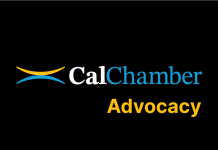More than 20 new labor and employment bills were signed into state law this year. Unless otherwise stated, these new laws take effect January 1, 2021:
COVID-19-Related Laws
- SB 1159 establishes a rebuttable workers’ compensation presumption for workers that contract COVID-19 under certain conditions and requires employers to report COVID-19 cases to their workers’ compensation carriers. The bill went into effect immediately upon signing and remains in effect until January 1, 2023.
- AB 1867 also took effect immediately upon being signed, which was September 9, 2020. That bill expands supplemental paid sick leave for COVID-19-related reasons for certain employers not already covered by the federal Families First Coronavirus Response Act (FFCRA). That law will expire when the FFCRA does (currently set to expire on December 31, 2020).
- AB 685 establishes stringent COVID-19 recording and reporting requirements when employers receive notice of a potential COVID-19 exposure at the workplace. Among other things, AB 685 requires employers to provide a number of notices to different groups of employees within one business day after receiving notice of a potential COVID-19 exposure. Employers must also notify their local public health department if an “outbreak” occurs at the worksite. The bill increases the enforcement authority of the California Division of Occupational Safety and Health (Cal/OSHA) related to COVID-19. AB 685 takes effect January 1, 2021.
- AB 2043, another urgency measure that went into effect immediately when signed (September 20, 2020), requires Cal/OSHA to disseminate to agricultural employers and employees, information on the best practices to prevent COVID-19 infections, both in English and Spanish. This law remains in effect only until the end of the state of emergency.
- Two bills related to personal protective equipment (PPE) became law. AB 2537 requires public and private employers of workers in a hospital to supply certain employees with PPE, maintain a three-month stockpile of PPE and provide inventory information to Cal/OSHA upon request. SB 275 requires the state to develop a stockpile of PPE, and, beginning January 1, 2023, certain employers must maintain PPE stockpiles as specified.
Leaves of Absence
- SB 1383 significantly expands the California Family Rights Act (CFRA) beginning January 1, 2021. Notably, this bill expands employer coverage to include all employers with five or more employees, which is much fewer than the previous 50 or more employees requirement. This is a major development. Small businesses will need to quickly get up to speed on CFRA’s requirements in order to be ready by January 1.
SB 1383 also expands the definition of “family members” beyond what is covered under the federal Family and Medical Leave Act (FMLA), which will affect larger employers who will have to administer CFRA and FMLA separately in some cases.
For example, an employee can take 12 weeks of leave to care for a sibling under the CFRA and then another separate 12 weeks to cover an illness under the FMLA for total of 24 weeks of protected leave. Employers, big and small, should become familiar with the law’s details and be prepared to revise or implement compliant policies and practices by 2021.
- AB 1867 creates a pilot CFRA mediation program allowing small employers, with five to 19 employees, to request mediation through the Department of Fair Employment and Housing’s (DFEH) dispute resolution program when a dispute arises.
- AB 2992 expands the prohibition on discrimination and retaliation against employees that are victims of crime or abuse when they take time off for judicial proceedings or to seek medical attention or related relief for domestic violence, sexual assault, stalking or other crime that causes physical or mental injury.
Currently, an employee can use up to half of their accrued sick leave to care for a family member, also known as “kin care.” AB 2017 revises the law to clarify that the employee has the right to designate sick leave as kin care, or not, in order to avoid a designation error and unintentional draw down of kin care time when the sick days were actually taken for personal sick leave.
Worker Classification
- Early in this year’s legislative session, roughly 30 bills were introduced to either repeal or revise AB 5. In the end, only one bill survived and was signed into law, AB 2257. The bill doesn’t change the underlying framework of AB 5, but it makes some revisions and clarifications to some of the existing exceptions and added new ones. AB 2257 went into effect when it was signed on September 4, 2020.
Wage and Hour
- SB 1384 expands the Labor Commissioner’s ability to represent claimants under certain circumstances. Currently, the Labor Commissioner can, upon request, represent a claimant in proceedings to appeal a wage claim award if the claimant couldn’t afford counsel. SB 1384 extends the commissioner’s authority to also represent a claimant who’s financially unable to represent themselves in a hearing where a court order has compelled arbitration to determine the claim.
- AB 3075 specifically makes a successor employer liable for its predecessor’s unpaid wage judgments and establishes specific criteria to establish successorship. The bill also allows local jurisdictions to enforce state labor standards requirements regarding payment of wages.
- AB 1947 extends the time an individual can file a complaint of discrimination or retaliation with the California Division of Labor Standards Enforcement (DLSE), also known as the California Labor Commissioner. Under current law, workers alleging they were discriminated or retaliated against in violation of any Labor Commissioner-enforced law have six months to file a complaint with the Labor Commissioner, but beginning January 1, 2021, AB 1947 extends that time to one year.
- A couple of narrow industry-specific rest break bills were signed this year. AB 1512 applies only to security guards and AB 2479 provides exceptions for safety-sensitive positions at petroleum facilities to 2026.
Pay Data
- SB 973 requires a private employer that has 100 or more employees and is required to file an annual Employer Information Report (EEO-1) under federal law, to submit a pay data report to the Department of Fair Employment and Housing (DFEH) that contains information about employees’ race, ethnicity and gender in various job categories on or before March 31, 2021. The DFEH is given related enforcement authority.
This essentially creates California’s version of the federal EEO-1 information that some employers must submit to the federal Equal Employment Opportunity Commission (EEOC).
California Consumer Privacy Act
- In 2019, AB 25 largely exempted employee data from the California Consumer Privacy Act (CCPA) for one year. This year’s AB 1281 extends the exemption for an additional year to the end of 2021.
Corporate Boards of Directors
- AB 979 requires that publicly held corporations with principal executive offices in California have a minimum of one director from an underrepresented community no later than the close of the 2021 calendar year.
By 2022, a corporate board with four to nine directors must have two directors from underrepresented communities, and a board with nine or more directors must have three directors from underrepresented communities. The bill defines a director from an underrepresented community as “an individual who self-identifies as Black, African American, Hispanic, Latino, Asian, Pacific Islander, Native American, Native Hawaiian or Alaska Native, or who self-identifies as gay, lesbian, bisexual or transgender.”
Bills Related to Minors
- AB 908 makes it easier for minors to obtain work permits during COVID-19-related school closures. Specifically, it authorizes issuance of a work permit without the appearance of the minor or their parent or guardian when the school is closed due to a “natural disaster, pandemic or other emergency.” It also allows for electronic submission/collection of required documents.
- In the entertainment industry, a work permit could not be issued to a minor until the minor and their parent or guardian completed the state’s mandatory harassment prevention training; AB 3175 revised this to specify that the minor’s parent or legal guardian also must accompany the minor during the training and certify to the Labor Commissioner that the training was completed as specified. It also requires the training to be in the language understood by the participants whenever reasonably possible. This bill was an urgency statute that took effect on September 25, 2020.
- Relating to AB 3175, AB 3369 exempts minors—who received a work permit from the Labor Commissioner within the last two years—from the current state harassment prevention training deadline of January 1, 2021. Like employees who completed training in 2019, they must complete the state’s harassment prevention training every two years based on their last training. This urgency bill took effect when signed on September 28, 2020.
White Paper
The above information is taken from CalChamber’s New California Employment Laws Effective Now and Coming January 1, 2021. The white paper is now available at hrcalifornia.calchamber.com.
The California Chamber of Commerce (CalChamber) is the largest broad-based business advocate to government in California. Membership represents one-quarter of the private sector jobs in California and includes firms of all sizes and companies from every industry within the state. Leveraging our front-line knowledge of laws and regulations, we provide products and services to help businesses comply with both federal and state law. CalChamber, a not-for-profit organization with roots dating to 1890, promotes international trade and investment in order to stimulate California’s economy and create jobs. Please visit our website at www.calchamber.com
#####

